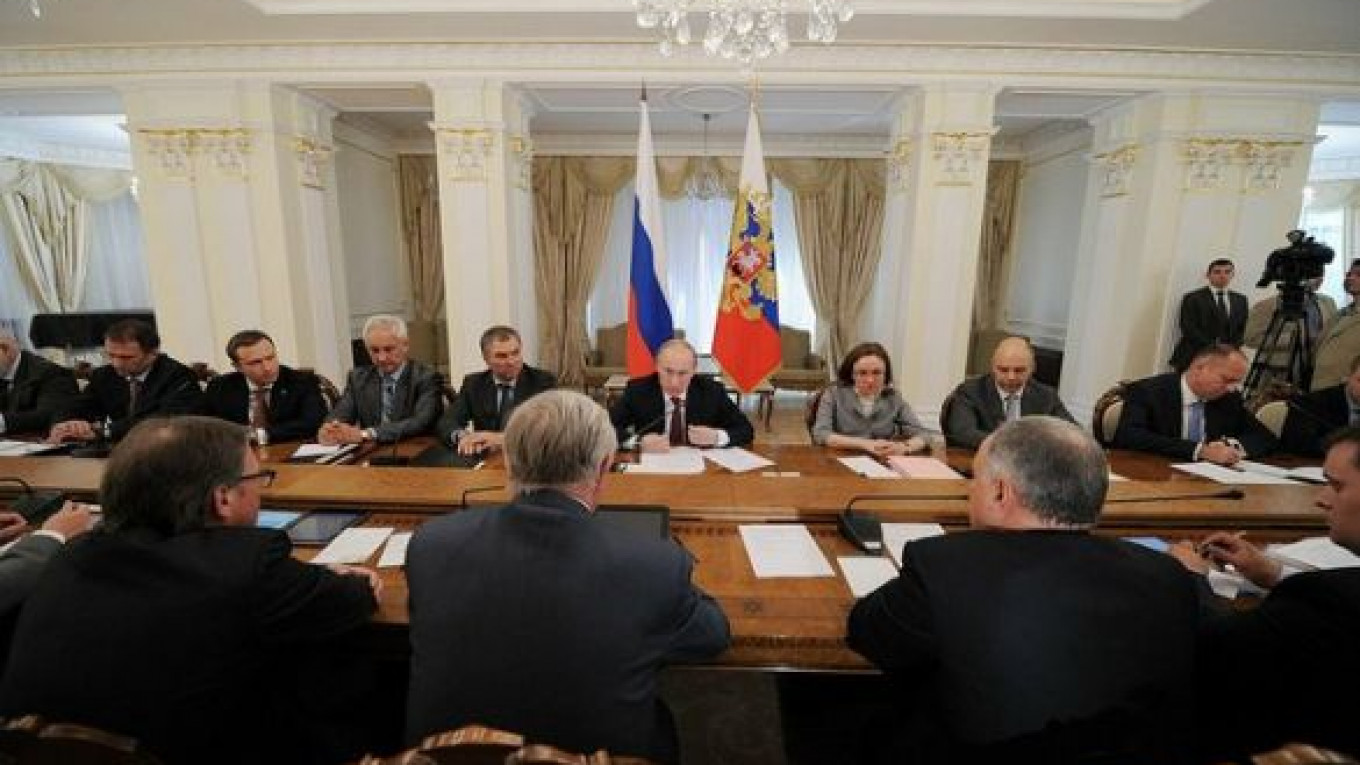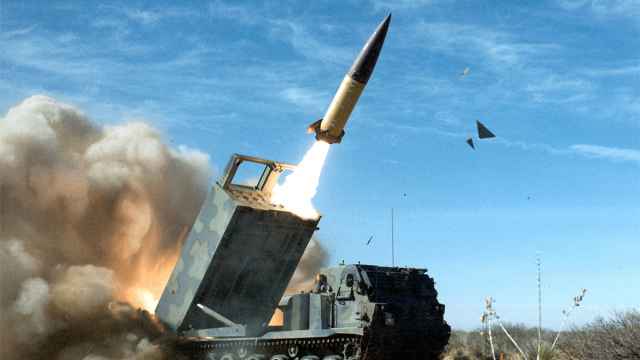President Vladimir Putin on Thursday ordered the government to approve a plan to sell assets held by state energy holding company Rosneftegaz in 2013-15, paving the way for the sale of stakes in Gazprom and Rosneft.
The decree appeared to represent a renewed drive to privatize energy assets, but the president later muddied the waters by stating that Rosneftegaz itself could take part in auctions of state-controlled energy and power companies to prevent them being sold to the private sector on the cheap.
"[These companies] are undervalued, and we would not like them to be privatized for peanuts and then to be resold right away for serious money," Putin said.
He said that using Rosneftegaz as a vehicle for acquiring state companies was a way to recapitalize them using nonbudgetary resources, adding that "nothing has changed with regard to privatization plans."
The decree stated that Rosneftegaz would have to finance any acquisitions using dividends paid by companies that it owned.
Putin's comments were the latest in a series that have left the market scratching its head over the new government's stance on privatization since its formation earlier this week.
Putin's latest order potentially opens the way for the sale of a stake in biggest oil producer Rosneft, although on Tuesday a separate presidential decree placed the giant on a list of strategic companies that should officially remain in state hands.
Rosneftegaz controls 75.16 percent in Rosneft, 10.74 percent in Gazprom and 7 percent in the Caspian Pipeline Consortium.
While Gazprom's privatization has not been discussed, selling down the state's stake in $65 billion-valued Rosneft has been included on earlier lists of assets to be auctioned.
A Message from The Moscow Times:
Dear readers,
We are facing unprecedented challenges. Russia's Prosecutor General's Office has designated The Moscow Times as an "undesirable" organization, criminalizing our work and putting our staff at risk of prosecution. This follows our earlier unjust labeling as a "foreign agent."
These actions are direct attempts to silence independent journalism in Russia. The authorities claim our work "discredits the decisions of the Russian leadership." We see things differently: we strive to provide accurate, unbiased reporting on Russia.
We, the journalists of The Moscow Times, refuse to be silenced. But to continue our work, we need your help.
Your support, no matter how small, makes a world of difference. If you can, please support us monthly starting from just $2. It's quick to set up, and every contribution makes a significant impact.
By supporting The Moscow Times, you're defending open, independent journalism in the face of repression. Thank you for standing with us.
Remind me later.






